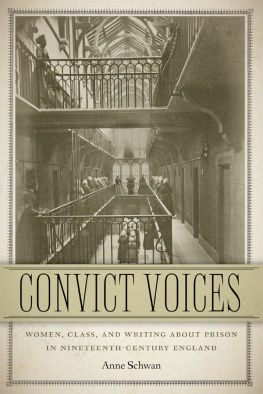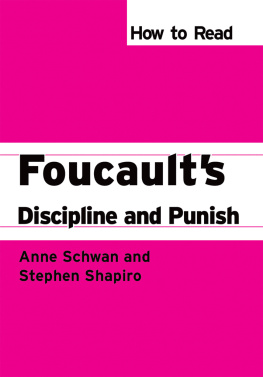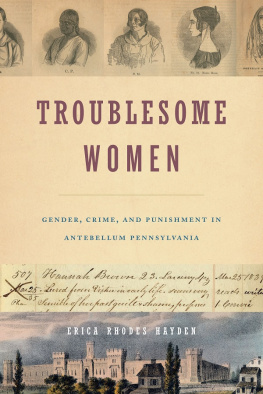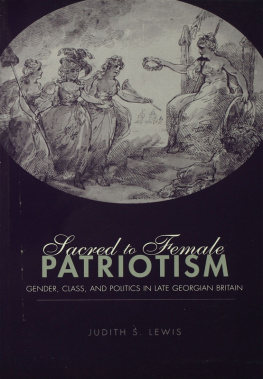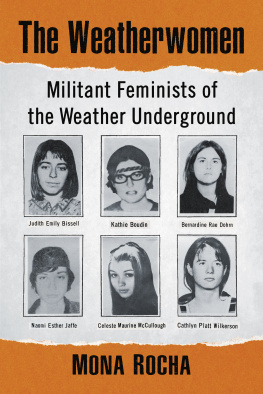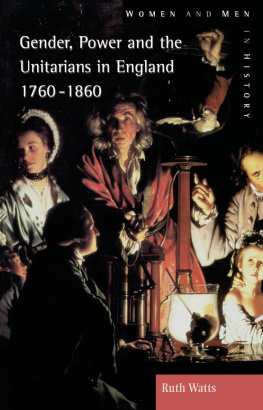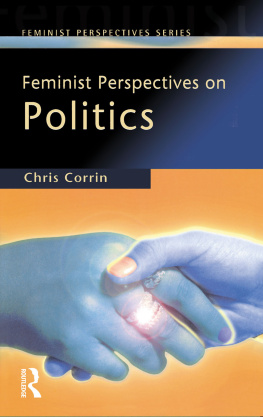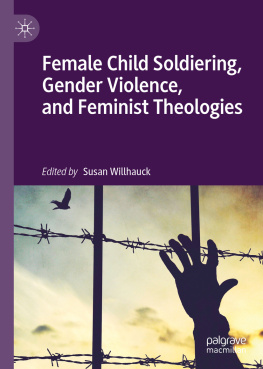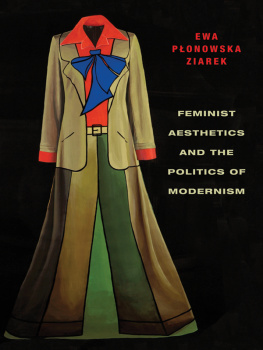BECOMING MODERN
New Nineteenth-Century Studies
SERIES EDITORS
Sarah Way Sherman
Department of English
University of New Hampshire
Janet Polasky
Department of History
University of New Hampshire
Janet Aikins Yount
Department of English
University of New Hampshire
Rohan McWilliam
Anglia Ruskin University
Cambridge, England
This book series maps the complexity of historical change and assesses the formation of ideas, movements, and institutions crucial to our own time by publishing books that examine the emergence of modernity in North America and Europe. Set primarily but not exclusively in the nineteenth century, the series shifts attention from modernitys twentieth-century forms to its earlier moments of uncertain and often disputed construction. Seeking books of interest to scholars on both sides of the Atlantic, it thereby encourages the expansion of nineteenth-century studies and the exploration of more global patterns of development.
For a complete list of books available in this series, see www.upne.com
Anne Schwan, Convict Voices: Women, Class, and Writing about Prison in Nineteenth-Century England
Katherine Joslin and Daneen Wardrop, editors, Crossings in Text and Textile
Sarah Way Sherman, Sacramental Shopping: Louisa May Alcott, Edith Wharton, and the Spirit of Modern Consumerism
Kimberly Wahl, Dressed as in a Painting: Women and British Aestheticism in an Age of Reform
Hildegard Hoeller, From Gift to Commodity: Capitalism and Sacrifice in Nineteenth-Century American Fiction
Beth L. Lueck, Brigitte Bailey, and Lucinda L. Damon-Bach, editors, Transatlantic Women: Nineteenth-Century American Women Writers and Great Britain
ANNE SCHWAN
Convict Voices
Women, Class, and Writing about Prison in Nineteenth-Century England
UNIVERSITY OF NEW HAMPSHIRE PRESS
Durham, New Hampshire
UNIVERSITY OF NEW HAMPSHIRE PRESS
www.upne.com/unh.html
2014 University of New Hampshire
All rights reserved
For permission to reproduce any of the material in this book, contact Permissions, University Press of New England, One Court Street, Suite 250, Lebanon NH 03766; or visit www.upne.com
Library of Congress Control Number: 2014935035
ISBN 978-1-61168-673-9 (ebook)
Fr Rudolf und Brigitte Schwan
CONTENTS
ACKNOWLEDGMENTS
Many people and institutions have helped me on the path toward completion of this book. I am especially indebted to my former supervisor, the late Sally Ledger, whose intellectual curiosity, positive attitude, and sense of humor continue to inspire my research and work with my own students. Without her warm and generous support, I would not be who I am today. I also thank the following individuals who have assisted me professionally, through constructive feedback, words of encouragement, or acts of friendship, at different stages of my career: Jan Alber, Isobel Armstrong, Maurizio Ascari, Philip Barnard, Joseph Bristow, Laura Coffey, Ella Dzelzainis, Carrie Etter, Edith Frampton, Hilary Fraser, Gill Frith, Holly Furneaux, Regenia Gagnier, Laurie Garrison, Michelle-Marie Gilkeson, Michael Gliddon, Walter Gbel, Jenny Hartley, Ann Heilmann, Tim Hitchcock, Marcelo Hoffman, Tobias Hug, Anne Humpherys, Susan Hyatt, Louise Jackson, Tobi Jacobi, Frank Lauterbach, Andrew Lawrence, Katherine Lebow, Tara MacDonald, Andrew Maunder, Josephine McDonagh, Rohan McWilliam, Ellen OBrien, June Purvis, Amber Regis, Helen Rogers, Saskia Schabio, Joanne Shattock, Robert Shoemaker, Sarah Turvey, Ed Wiltse, Sue Wiseman, Joanne Woodman, and Heather Worthington. For inspiring conversations and good collaboration, I thank my colleagues at Edinburgh Napier University; the participants of my conference Reading and Writing in Prison at Edinburgh Napier in June 2010; Fife College, HMP Edinburgh, and the Scottish Prison Service; and my students on the option module Crime in Text & Film over the past three years.
Thanks are due to the following libraries and their staff: Bodleian Library, British Library, Cambridge University Library, Edinburgh Napier University Library, Edinburgh University Library, Library of the Society of Friends in London, Museum of London, National Archives London, National Library of Scotland, Rochester University Library, San Diego State University Library, University of London Library at Senate House, Womens Library London (now at the London School of Economics). I gratefully acknowledge funding from the Arts and Humanities Research Council (AHRC) in the form of an Early Career Research Fellowship (JanuaryAugust 2011) and doctoral funding in the earliest stages of this project. I am similarly indebted to the Heinrich Bll Stiftung for a doctoral scholarship. The University of London Central Research Fund and a travel grant from the Carnegie Trust for the Universities of Scotland enabled me to visit specialist libraries and archives at different moments of this research. A British Academy Overseas Conference Grant facilitated important networking opportunities at the 2006 College English Association (CEA) Conference in San Antonio, Texas, which were crucial for the further development of my work. A British Association for Victorian Studies (BAVS) award for conference organization allowed for valuable networking at my Reading and Writing in Prison conference. My current and previous employersEdinburgh Napier University, Birkbeck College, Keble College, University of Hertfordshire, University of Warwickand my host institution in autumn 2010, San Diego State University, have given institutional support in various ways, which I appreciate. I thank the University Press of New Englandespecially Phyllis Deutsch and the series editorsfor their interest in this project, and the editorial team for efficient and thoughtful support during the final preparation of the manuscript.
I am eternally grateful for the backing of my family: my parents, Rudolf and Brigitte Schwan, for their unflinching support, both moral and material, and for never suggesting, during the long years of postgraduate training, that I get a proper job; and Franziska Horn for taking an interest in academic life during long phone conversations. Finally, I thank Stephen Shapiro for his love, companionship, and conversation over the years and for sharing the ups and downs throughout this long process.
NOTE ON ABBREVIATIONS
| PP | Parliamentary Papers |
| RCHL | Reports from Select Committees of the House of Lords |
| RDCP | Reports of the Directors of Convict Prisons |
| RI | Reports of the Inspectors of Prisons |
The volumes of Parliamentary Papers used are those at the British Library. My citation format for Parliamentary Papers is as follows: title of paper, year of publication, report number in parentheses, volume number, printed page number. If a handwritten page number is given, it is added in square brackets after the printed page number. The page reference provided in the list of works cited refers to the handwritten start page of the document in question, within the bound volume.
Introduction
Approaching Female Prisoners Voices
What does the past tell us? In and of itself, it tells us nothing. We have to be listening first, before it will say a word; and even so, listening means telling, and then retelling.
Margaret Atwood, In Search of Alias Grace
This is a book about womens voices in the penal sphere and the difficulty of uncovering them. In 1985, criminologist Pat Carlen published Criminal Women: Autobiographical Accounts, a collection of female offender life narratives. Designed to give female (ex-)prisoners a sense of agency and the chance to destroy the mythology which inseminates contemporary stereotypes of criminal women (13), the pioneering work aimed to counter the ramifications of monocausal and global (9) models of female criminality by drawing attention to the diversity and complexities of women prisoners experiences through their stories.
Next page
